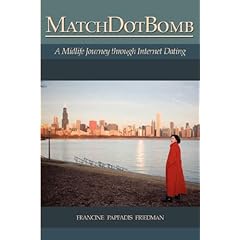 When I returned from my last extensive trip (Ireland this past spring), I thought that my travel days were over. After nine trips with Grand Circle Travel and more with other travel companies, plus many earlier trips by motorcycle with my late husband, I was content to let my passport expire and retreat (at least figuratively) to my recliner. Why? My arthritic knees were a big problem on that trip, and I was considering the indignities of relying on wheelchairs at airports and planning knee replacement surgery.
When I returned from my last extensive trip (Ireland this past spring), I thought that my travel days were over. After nine trips with Grand Circle Travel and more with other travel companies, plus many earlier trips by motorcycle with my late husband, I was content to let my passport expire and retreat (at least figuratively) to my recliner. Why? My arthritic knees were a big problem on that trip, and I was considering the indignities of relying on wheelchairs at airports and planning knee replacement surgery.Since then, my attitude has changed considerably. I have remembered the importance of having goals and future plans, in my case usually involving travel. That's been my pattern for years: always thinking about or preparing for my next trip. Should I allow age and arthritis to slow me down right now, or can I keep going?
I'd completed my quest to visit all seven continents by 2005, and I've visited most of the countries and cities and natural and man-made wonders I've always wanted to see. I eventually realized that there was one country left on my list: South Africa. Yes, I've visited the African continent, including Morocco and Egypt. Still, there's something fascinating about the political and social struggles, the animals and the scenery, of South Africa that has intrigued me.
Fortunately, my knees improved enough so that I could begin walking, and on Sunday, during a long lakefront walk, I began to think about travel again. Could I do it? That's when I really began "thinking big." Such a trip to the other side of the world would take nearly twenty-four hours (including a plane transfer). It would be very expensive. And I realized that I would have to travel business class, since many of my knee problems seem to stem from hours of inactivity in a cramped economy class seat. Have you priced business class travel lately? Wow!
Yesterday, I made a reservation for a tenth Grand Circle trip: "Highlights of South Africa," beginning next April. Am I wealthy? No. Insane? Possibly, but as I keep telling my fellow senior citizens, don't give up too easily. I know the trip will be difficult, and a lot of problems can intervene between now and April. Still, making happy plans for the future is very important. Stay tuned, and wish me well! If I make it, I'll have a lot to write about next year.
Copyright 2007 by Marlys Marshall Styne
Photo from the Grand Circle Travel web site, http://www.gct.com/























